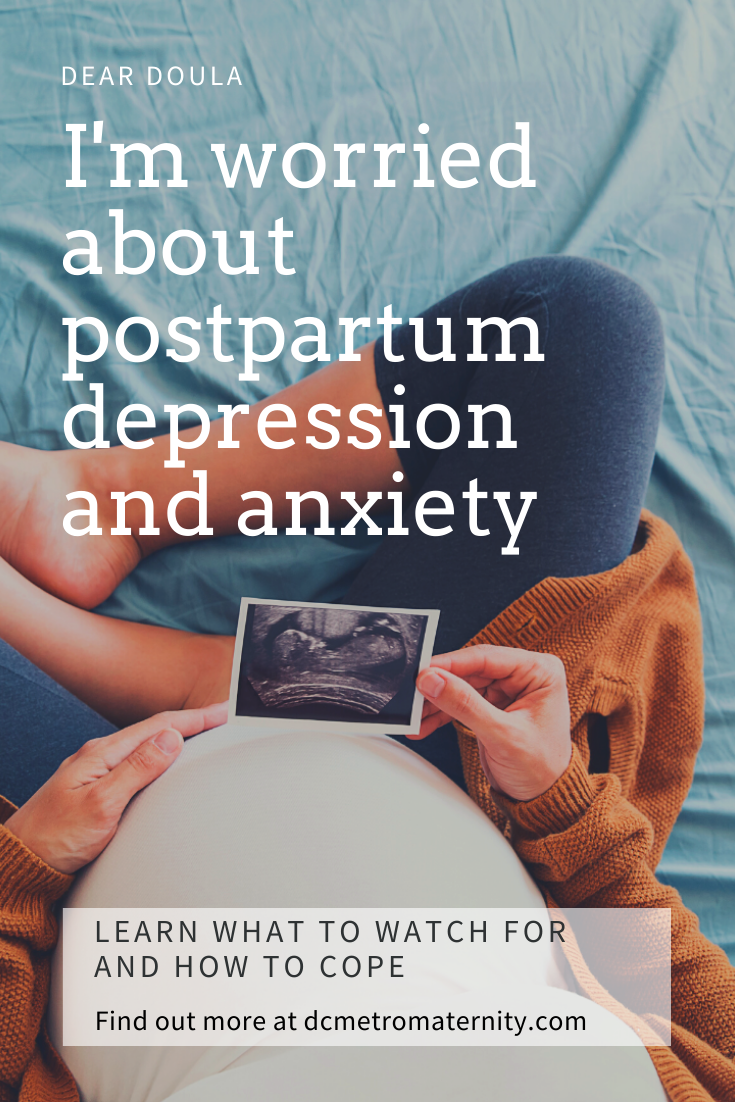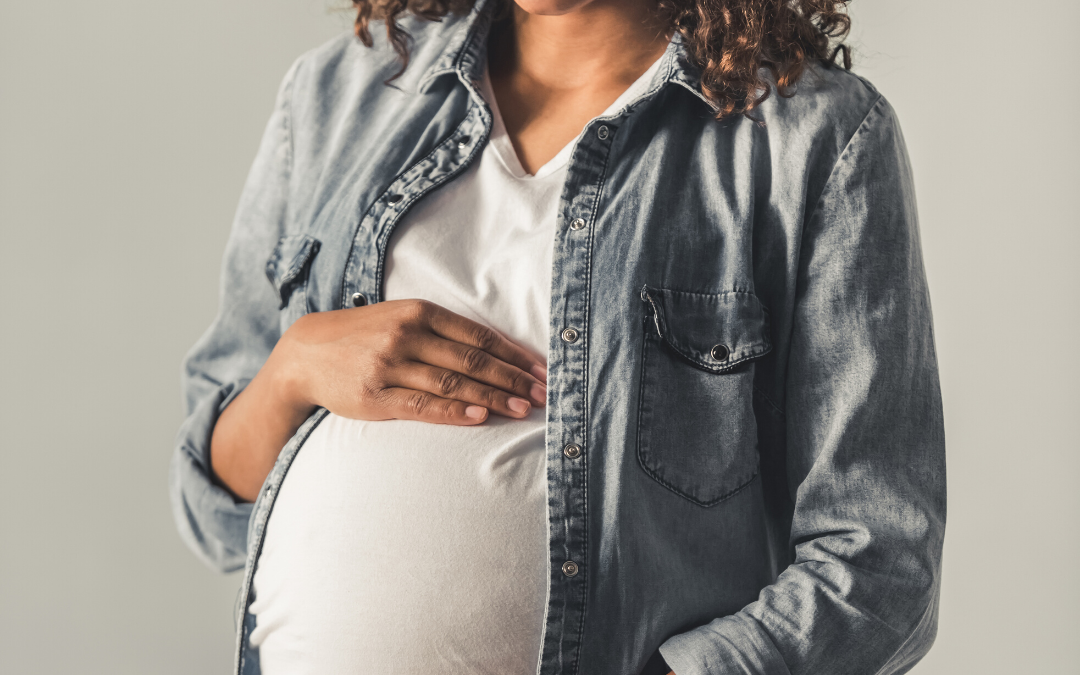Dear Doula,
I’m going to have a baby. And everyone is telling me how excited they are for us, and how happy I must be. And I am! So happy!
But also… There’s this lurking fear at the back of my mind about bringing my new baby home. What about postpartum depression? And I just saw an article that said postpartum anxiety is actually really common? I didn’t even have it on my radar!
What should you do if you really want to be a new mom, but you worry that you actually can’t handle another person being completely dependent on you?
Maybe I’m worried over nothing, but I know that in the past, major changes have really stressed me out. I’ve had a bit of anxiety and depression before, and people always talk about how a baby changes everything. What if all of the changes aren’t good?
Am I freaking out over nothing?
Signed,
Anxious about becoming an anxious new mom

Dear Anxious About Being Anxious,
If this is your freakout, I want to start by reassuring you that you’re a pretty pulled together person. You’ve identified a potential issue, and pretty quickly, you’re reaching out and finding resources and ways to deal with it.
This is, frankly, amazing. You should give yourself a high five.
Women of color and the US as a whole has made lots of progress on mental health. Between online therapy resources, celebrities speaking out about mental health, and culturally specific spaces like Therapy for Black Girls, more and more people are realizing that taking care of our brains is as important as caring for our bodies.
But it can still take a lot to address concerns about anxiety, depression or other issues. This is especially true during pregnancy, and with a new baby. Everything around you suggests that you’re supposed to love motherhood and everything about it. There isn’t a lot of room to talk about your worries out loud without feeling shame.
One thing that might help you is to know what’s normal and not in advance. That way, you (along with loved ones you trust, and/or a postpartum doula) can have a plan ready to go just in case.
So what’s normal for your mood after having a new baby? And what’s postpartum depression?
For the first couple of weeks after birth, baby blues is incredibly common. You can expect mood swings, feeling either fatigue or insomnia, bouts of weepiness, restlessness, irritability or anxiety in the early postpartum period.
Some people believe that it’s related to the massive hormonal shifts going on in your body. Others point to the lack of support we have postpartum- the need to go back to work quickly, our disconnection from family and support communities. I think it’s likely a combination of these things, our expectations, and a major transition on top of stress most of us are already experiencing before the baby.
Regardless of why, I know that many of our clients experience baby blues.
It’s normal, and thank God/Goddess/your lucky stars, it’s temporary and your experience with motherhood often gets better.
What we watch out for though, is both the severity of these symptoms, and how long they last.
It’s no longer normal postpartum adjustment (especially more than 14 days after birth) if you’re experiencing anything like:
-
The inability to rest when you could
-
Exhaustion and a lack of motivation
-
A lack of appetite
-
A feeling that your baby or family would be better off with another mother/ parent
-
Anxious or panicky feelings
-
Worrisome thoughts that won’t leave your mind
-
Loss of touch with reality
-
Overwhelming sadness
These are all potential signs of a perinatal mood and anxiety disorder (PMAD), which is the larger term that includes postpartum depression, postpartum anxiety, postpartum OCD, bipolar disorder and postpartum psychosis (the most rare and serious).
They aren’t the only signs, and if you’re ever feeling concerned for yourself, trust your gut. You don’t have to feel like a “bad mom”, “crazy”, “out of control” or like you might hurt yourself or your baby. Postpartum depression and, anxiety and other PMADs are common.
None of these symptoms, or a diagnosis of postpartum depression (or any other PMAD) mean you’ve done anything wrong.
PMADs don’t mean that you’re a bad mom. They don’t mean you will lose your baby or are unfit to be a parent.
They just mean that you should have support.
So okay. Now you know this, while you’re still pregnant. What can you do in advance?
- Seek out a mental health professional that is trained in the perinatal period, and works frequently with pregnant folks and new parents. You can do it now, before you have a challenge. We have a number of trusted local referrals at DC Metro Maternity.
- Talk to your loved ones about your concerns ahead of time. Who supported you when you experienced depression and anxiety before? Maybe they’re good candidates.
- Have plans to nourish yourself when the baby comes. This should be both with food, and with other things that are good for your soul. Sunlight, being cared for, moving your body in ways that feel good and being in environments where you feel loved, matter.
- Seek out loved ones, mom groups, mom friends, and consider a postpartum and infant care doula. Don’t do this alone.
If you’re in the DC area, call us. Seriously. You’re doing a good thing by reaching out, and I know you’ll be a good mom.


